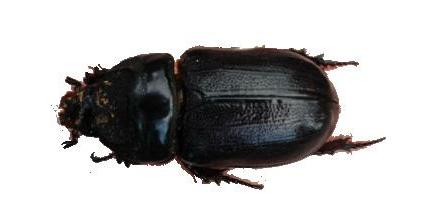
3 minute read
Ways to Boost Your Immunity
10 Ways to Boost Your Immunity to Fight COVID-19
With the recent spike in COVID-19 cases, the risk of exposure has increased exponentially. Even if you are exposed, you may not get infected if your immune system is strong enough.
Dr. Terry Shintani, renowned Hawaii nutritionist and family physician, gives sound advice in a YouTube video on 10 ways to boost your immune system to protect against COVID-19.
By: Melanie Martin
Get about 7 to 8 hours of sleep a night.
5. Vitamin D – Vitamin D protects against viral infections and can be enhanced not just by supplements, but by moderate exposure to sunlight.
6. Vitamin C - Vitamin C reduces symptoms of common cold.
7. Zinc – Like vitamin C, zinc also reduces symptoms of the common cold and keeps your immune system strong.

1. Eat colorful fruits and vegetables – Fruits and vegetables are filled with vitamins and nutrients to boost your immune system.
2. Avoid things that burden the immune system - Stop doing things that will weaken your immunity such as smoking, drinking alcohol, and eating processed foods.
3. Exercise – Exercise wakes up your immune system. Moderate exercise reduces the risk and severity of respiratory viral infections. But don’t overdo it! Too much exercise can compromise your immune system.


4. Sleep – Sleep positively affects your ability to ward off viral infections. 8. Garlic – Studies have shown that garlic may reduce the severity of cold and flu symptoms.
9. Elderberry – This is a dark purple berry from the elder tree. A randomized study found elderberry relieves symptoms of the common cold an average of four days earlier.
10. Ginger – Allicin, which is found in ginger, has the ability to inhibit the binding capacity of viruses. As such, it is likely to prevent influenza, respiratory viruses, and possibly COVID-19.
To view this and Dr. Shintani’s other videos about COVID-19, visit youtube.com/channel/ UCHAL6LYp_00SLoBO4ai1XnQ.
safe and cost-effective manner.
An additional $130,000 was provided for outreach, control and eradication.
Rapid ‘Ohia Death is a new fungal pathogen.
The fungus attacks and can quickly kill endemic ohia trees which comprises approximately 80% of Hawai’i’s native forests. $312,000 is provided to educate and learn more.
Highways is among the various organizations that receives training on the decontamination of this destructive fungus.
Airports pilot project, Mamalu Poepoe enhances monitoring of targeted harmful species of ants, bees, mosquitos, and beetles on airport facilities statewide.
The HISC appropriated $40,000 to continue this project that protects our natural resources, agriculture, human health, and tourism resources. these beetles are known to eradicate coconut palm trees on Pacific islands.
• Mosquitos are disease vectors particularly the Aedes mosquito known to spread dangerous diseases such as the zika virus, dengue fever, yellow fever and chikungunya.
Unfortunately not all of the known gaps in Hawai’i’s biosecurity at points of entry can be addressed in the scope of Mamalu Poe Poe.
It is hoped that through this interagency partnership we can explore value added opportunities to further mitigate the spread of these and other potential high-risk species at points of entry found in snakes, seeds and eggs.
Harbors is collaborating with multi-agencies working on marine biosecurity threats in ballast water and vessel biofouling.
$86,000 was appropriated to the Division of Aquatic Resources to continue discussions to prevent the introduction and spread of aquatic non-native species by reducing species movement through ballast water, biofouling, intentional import and release, and unintentional modes of marine introduction.
A listing of Hawai’i invasive species can found at: dlnr.hawaii.gov/hisc/info/invasivespecies-profiles/. Should you encounter an invasive species, contact 643pest.org or call (808) 643-PEST.

• Little Fire Ants deliver painful stings and infestations not only damage agriculture but promote other invasive aphids, white flies and scale insects.
• Africanized Honey Bees are killer bees known to aggressively attack people and animals and would very difficult to control with Hawaii’s low lands and ideal climate.
• Coconut Rhinoceros Beetles are a major pest of coconut palms. With no natural enemies,








